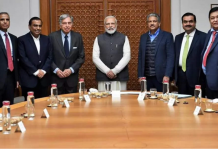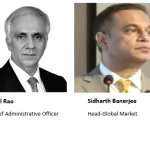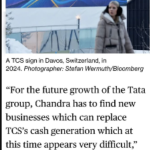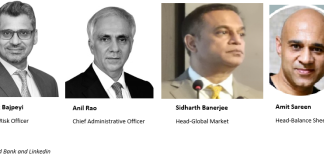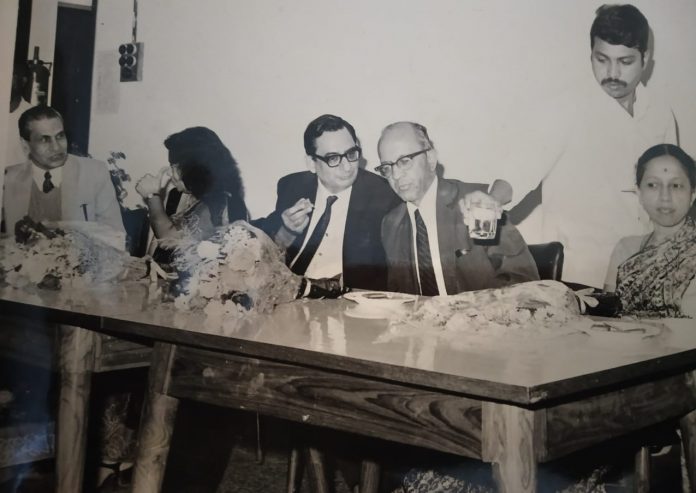
By K S Krishnaswamy
I
RAVI HAZARI was not by any means an old man when he died. He was barely fifty-five, though he had Retired’ as Deputy Governor eight years ago. Several friends of mine who knew him only by reputation have expressed surprise that he was so young; perhaps this was their delicate way of condoling his death, perhaps it was something more—a measure of their appreciation of his achievements. Whatever their intent, I suddenly realised how totally unaware I was of our age difference in all of the years 1 knew Ravi. He had a presence and an air about him which made it easy for people of all ages to believe that he was their contemporary.
I first met Ravi Hazari in Bombay with Sachin Chaudhuri sometime in 1953. I am not certain whether it was at Sachin’s office, or in his celebrated salon at Churchill Chambers. Ravi was one of the band of young intellectuals whom Sachin both sought and attracted in the formative years of The Economic Weekly. They were discussing a short note on some public limited company drafted by Ravi—Sachin ever so dextrously modifying a word here or a phrase there, and Ravi valiantly trying to preserve his original. What struck one was the graciousness of each in dealing with the other. Barely twenty-two and strikingly handsome, Ravi was obviously a willing neophyte. He was specialising, Sachin told me, in industrial economics at the University School and also teaching economics at St Xavier’s College,
I cannot say that from that moment on a friendship of classical proportions began to blossom. Though I came to live in Bombay soon after, and though both of us kept in close touch with Sachin, we met each other only infrequently. But we got to know increasingly of each other’s writings— again at the pre-publication stages of the Weekly. Ravi was, at that time, more at home with micro-economics while I preferred macro-economic balances, development strategies and the like. With virtually no knowledge of Indian industry, corporate finance or company law, I was attracted by the company notes and analyses Ravi brought to Sachin. And I suspect that Ravi felt more at home with my broad economic generalisations than with Sachin’s subtleties of social dynamics. It was only by the late 1950s, after Ravi’s comments on an atricle of mine in the Indian Economic Journal and my rejoinder, that our contacts grew rapidly.
Ravi had by then established himself as a very considerable industrial economist— with a series of perceptive articles on organisational structure, concentration of economic power and control mechanisms in the private sector of Indian industry. His enquiries into the holdings of and management control by large family houses such as Birlas generated a public debate of serious proportions, besides arousing the wrath of capitalists. I had moved over to the Planning Commission by 1961, but our contacts continued as Ravi’s visits to New Delhi became frequent, both to fight the court cases filed against him by the industrial houses he had ‘offended’ and to gather further data for his research work. It was largely during this period that we got to know each other well personally. Through his empirical work, he had arrived at an economic philosophy that was close enough to mine, and we felt at ease with each other’s position on policy matters. Though not by any means a Marxist, Ravi was familiar with socialist thought and had by then come to the conclusion that the modalities and ethics of the Indian corporate sector made it inherently acquisitive and exploitative; and that state action was essential if industrial competition was to prevail. He was enough of a socialist to appreciate the need for the public sector occupying the commanding heights of industry, at least at that stage of India’s development. But, in retrospect, I have the feeling that his allegiance to the public sector was, even at that time, less wholehearted than mine. Subsequent events have proved that he was more right than many of us in cautioning against the dangers of placing too much faith in the efficiency of the public sector and too little in the social awareness of the new generation of private industry.
Ravi’s pioneering work on industrial concentration had a lasting impress on academic thinking in India as well as on industrial policy and legislation. It also elevated him to the Bombay University’s chair in industrial economics. Meanwhile, the political and economic situation became extremely fluid—with the transition from Jawaharlal Nehru to Lal Bahadur Shastri to Indira Gandhi. The fierce in-fighting within the Congress Party had started a process of polarisation in society and the gulf between ‘socialistic planners’ and ‘organisation Congressites’ quickly widened, raising fresh debates on public sector investment, priorities, controls and the policies of planning. Inevitably, pressure groups and vested interests of all kinds surfaced in this turbulence and began to align themselves with one or the other of the Congress schisms. It was not a situation from which activists and idealists in academia, the press and elsewhere in society could keep aloof; and Sachin Chaudhuri and Ravi Hazari, with their deep sense of social responsibility, could hardly watch it all passively. They were both deeply involved, each in his own way, in sorting out the essentials, counseling those in power or those aspiring to it and—most importantly —striving to raise the level of public understanding of vital issues at stake. Ravi’s contributions on the industrial structure heightened, in particular, the debate on the need to curb monopoly and restrictive practices in both private industry and trade-extending there from to banking which was still very much their preserve. Sadly, Sachin died at the height of all this turmoil, and after an interval, Ravi stepped into the editorial position of the EPW.
Hazari had by then become a somewhat controversial figure and I recollect the hesitation some senior associates of Sachin Choudhuri had about inviting him to edit the journal. I had in the meantime shifted to Washington DC for a stint at the World Bank and cannot, therefore, speak on this episode with any claim to detailed knowledge. There were, however, a couple of letters to me from some of those interested, setting out the pros and cons of possible incumbents and asking for my views. I cannot honestly claim to have come out strongly in favour of Ravi; my doubts centred mainly on whether Ravi could maintain the very high standards of fairness, scholarship, political and historical assessment and aesthetic sensibility set by Sachin. But I could not also pretend that any of the other candidates could do so, that Sachin’s world was permanent or that his style would continue to be suitable in the changed situation. Nor did it appear to me correct that the new editor, whoever it may be, should be denied the privilege of shaping the task in his own way or developing a new style, as long as they were in tune with the basic spirit and objectives of the journal. Ravi was in the end entrusted with the task; and it is now a matter of history that in the brief period of his stewardship, the EPW not merely endured but grew in strength. It attracted new talent without losing the older ones; and while its editorials and weekly notes may have lacked the depth and refinement of Sachin’s writing, they maintained the objectivity and relevance that had given The Economic Weekly a special position amongst professional journals. Rather importantly, Ravi fashioned for the EPW an organisational and financial base which it so sadly lacked in the past.
II
The traumatic changes in India during 1969 also ended Hazari’s stint as an editor and, much to the amazement of many, he was catapulted into the Reserve Bank to become youngest deputy governor in the bank’s history. Since I was still in the service of the bank, he had become very much my senior in the hierarchy, and I cannot pretend to have been entirely pleased with this development. While I was still trying to figure out whether, and if so how, I should reshape my re-entry into India and the Reserve Bank, Ravi sent a warm and gracious note to me through a common friend, hoping that his entry into the RBI would not result in my quitting and looking forward to some exciting joint operations, when I returned. I came back to the RBI three years later, by which time it had become, so to speak, a different ball-park.
This is not the place nor the occasion to indulge in historical digression. But the years 1969-72 were apparently so eventful in Ravi’s life that some recounting of the environmental changes may not be out of place. One of the issues in the ‘great divide’ of 1969 was bank nationalisation, and it is now well known that not only the so-called Syndicate in the Congress but many others in high places—including, it would appear, the then governor of the RBI and several senior officials in the government of India—were strongly opposed to it. Steps already taken, such as ‘social control’ and the appointment of the Banking Commission, were expected by them to rid the banking industry of the many ills to which it was heir; and the official argument was that these measures should be tried out before any drastic action was taken. But (as it became clearer later) gaining the commanding heights of banking was for Indira Gandhi not just a bargaining chip in the internal politics of the Congress party but an integral part of her grand strategy of emasculation of all institutions outside of her office. Unsurprisingly, the opponents of nationalisation lost out; the recalcitrant governor was moved out and, as it appeared to the rest of the world, a young knight in shining armour was entrusted with the task of remoulding the banking sector.
I do not know whether, as many seemed to believe, Ravi Hazari played a crucial role in the bank nationalisation episode—or whether he had at all pushed the case for it. But it was common knowledge that both Mohan Kumaramangalam, who had become a cabinet minister, and P N Haksar, the prime minister’s principal secretary, were much in favour of the move. It was also widely known that Ravi was close to both of them, and they might have been instrumental in inviting him to take over at the Reserve Bank. In any event, he came to the Reserve Bank with the specific instruction that he should have complete charge of banking operations and development, apart from any other responsibilities entrusted to him.
By the time I returned to the bank in 1972, Ravi Hazari was well established in the upper echelons of India’s policy-makers. He was no longer the sleek young academic I had known in the early 1960s. He had put on some weight and his gait had turned a trifle ponderous. He seemed to enjoy the authority he had, as well as the awe in which his colleagues and associates held him. He made no attempt to hide the fact that he was on the hot-line to New Delhi or that his voice was heard on many matters besides banking policy. However, the old-world courtesy, the deliberate—almost calculated—gestures and a liking for intellectual activity remained, along with the obvious enjoyment of the good things of life. Over the years, he had cultivated new mannerisms—an oracular style of public speaking and a penchant for innuendo and the sly remark in private discussion. Above all, he had very successfully projected the impression of a strong, courteous and constructive person in office as well as outside. Part of his aura and reputation understandably derived from the confidence reposed in him by the prime minister whose stature had grown immensely in the wake of the Bangladesh war. But there was little doubt that Ravi had earned most of it. In his three years of office he had travelled extensively, gained intimate knowledge of Indian bankers and banking, and established his competence to administer tough measures. To my pleasant surprise, I found that at this stage power still flowed from the RBI at Bombay insofar as the financial world was concerned, despite government ownership of major banks and the ceaseless efforts of the Department of Banking at New Delhi to gain ascendancy. Not a little of this was due to the strong handling of the transition from private to public banking by Ravi Hazari, and the dedicated support he got from both his colleagues in the RBI and the leaders of the banking community
As in all established bureaucracies, those who had gone up the official ladder through sheer seniority and become high priests of precedence and procedure resented Ravi’s power, popularity and eagerness to get things done quickly rather than ‘according to rules’. The younger officers in the research and operational departments relished this clash between the new and the old, and cooperated fully with Ravi. He had made it a practice to listen to the case worker, whatever his or her level, when consulting with the heads of departments; but he did so in such a way that the normal ‘lines of control’ were not disrupted. However, within each department under his control, he had established channels of information of his own!
The high noon of Ravi’s power was clearly the years immediately preceding the celebrated Allahabad High Court judgment against Indira Gandhi, and the subsequent rise of Sanjay Gandhi to power. Apart from the accidental death of Kumaramangalam, the eclipse of P N Haksar and the progressive strengthening of the finance ministry’s hold over public sector banks, Ravi’s power-base was eroded later by the differences between RBI and the government on matters of policy. Drought and balance of payments difficulties had thrown a heavy burden on demand management to counter domestic inflation. While RBI pressed for effective curbs on government expenditure along with credit control, government was keen on securing greater access to commercial bank deposits for public sector financing and deeper cuts in credit to the private sector, especially to large and medium industry and trade. Runaway increases in money supply and domestic prices were blamed on the Reserve Bank’s failure to control bank credit, and the bank was made to appear weak and partial to large borrowers in the private sector. As events moved relentlessly towards the Emergency, pressure mounted on the Reserve Bank to raise the statutory liquidity ratio, lend more to the Food Corporation, Indian Oil Corporation and other public sector enterprises, and finance the growing budget deficits; and correspondingly those who resisted these demands incurred the displeasure of the supreme power in New Delhi. Ravi had, perhaps, the worst of it all, given his reputation at that time of being the man who counted most in banking affairs.
Had the RBI-government differences been only on matters of broad policy, the dust would perhaps have settled down as soon as the awesome power of the government came into full play with the Emergency. But there were other specific matters on which Ravi had taken a strong position— such as application of the Credit Authorisation Scheme fully to public sector enterprises; grant of commercial bank credit to the Maharashtra government’s scheme of monopoly procurement of cotton, transmission of RBI’s statutory inspection reports on banks to the Department of Banking; grant of additional credit facilities to Maruti enterprises and other sick units controlled by those who had clustered around Sanjay Gandhi; licensing of bank branches on political recommendations, etc. Further, the power centres in New Delhi had by then realised the immense potential the public sector banks had for the exercise of pressure and patronage. As was only to be expected in these circumstances, the RBI and Ravi soon found themselves in a bad squeeze. When in 1975 a new governor of the Reserve Bank was appointed, it was not Ravi Hazari who was elevated, as seemed more than likely only a few months back. And as if this was not enough of a blow, the governor took the earliest possible opportunity to divest Hazari of the banking operations and credit policy portfolios. Much to my embarrassment, these departments were transferred to me; Ravi urged me to take over rather than let them pass to New Delhi’s minions in the bank and helped me unstintingly with his advice.
Ill
It is a measure of Ravi’s strength of character that he bore these blows with great dignity and forbearance. Instead of sulking or complaining feebly or seeking sympathy, he turned his full attention to the Agricultural Credit and Development Corporation, of which he was ex-officio chairman.
Given the political situation, he was most careful in his public utterances and associations and maintained a low profile in all he did thereafter. But the urge to organise and develop the institution under his charge effectively and in a manner that gave it an inherent stability to grow, continued. Despite slights and personality differences, he participated in the bank’s corporate deliberations and activities as before. He scrupulously avoided doing anything that smacked of encouraging dissension within the Reserve Bank or outside. It seemed as if the light had gone out of him. Perhaps some of it had; he had an acute perception of the political dimensions of what was happening under the Emergency, as well as the ruthless action that would be taken against him at the slightest indication of defiance or non-cooperation, and chose to be discreet. But he continued to resist the ‘crowding out’ of the private sector in the money and capital markets, arguing that utilisation of unused capacity in the private sector, particularly for the supply of wage or investment goods in great demand, was a matter of high priority in the inflationary conditions then prevailing, and that denial of essential credit to the private sector would only intensify the pressure on prices and balance of payments. His courageous stand on this issue was interpreted in official circles as anti-public sector, with the delays and inefficiencies of which Ravi had no patience. His scepticism about the relevance of many of the existing administrative controls or of the competence of the administrative service to manage business enterprises efficiently had become stronger over the years. Much later, he spoke bitterly of the ‘Rents of Misdelivery’ which the government’s policy of mindless extension of the control machinery had generated; but in those years of terror and persecution he had bottled it all up.
All this was no tonic to a sick body. In the hectic years of the past, he had sadly neglected his health and unbeknown to his colleagues or family or even himself he was on the brink of a breakdown. The blow fell a few months before his second term as deputy governor ended and thereafter the flesh remained weak though the spirit stayed as strong and as free from self-pity as ever.
Despite all the intensity and glory of his long career as a teacher, researcher, activist intellectual, policy adviser, editor and policymaker, Ravi had not Retired’ rich. He did not have a pension or a comfortable nest-egg to fall back upon. Thanks to one of his earlier investments, he had an apartment of his own in Bombay—for the reconditioning of which a fair portion of his savings had to be utilised. But the income from other sources was not adequate for his young family’s needs; his wife Saroj continued to teach at St Xavier’s and despite failing health he had to find ways of supplementing the family’s earnings. Among his enduring interests were management training and business counselling, which now offered him some scope for living honourably. The enormous moral support he had from his wife and children, and the regard and affection of numerous friends in banking, industry and academia made it possible for him to be much more active than it seemed possible for one so frail in health. Resolutely he had eschewed smoking, alcoholic drinks and gourmet food—all of which he had enjoyed to fully and for so long—and gradually built up enough strength to travel, attend board meetings or work as visiting faculty or consultant. Meeting him off and on, I had begun to think that the worst was over, and that, as his sons settled down and the rancours of the past ebbed away, he was at the start of a new chapter in his illustrious career. His contributions as a visiting professor, writer, company chairman and member of the prestigious Chakravarty Committee on the Working of the Monetary System had strengthened that feeling. But Ravi left suddenly, taking away from the world of those who had the privilege of knowing him more than a little bit of its rich flavour. He lived, not long enough to rest on his oars or accumulate riches, but meaningfully enough to leave a memory that one can cherish.



